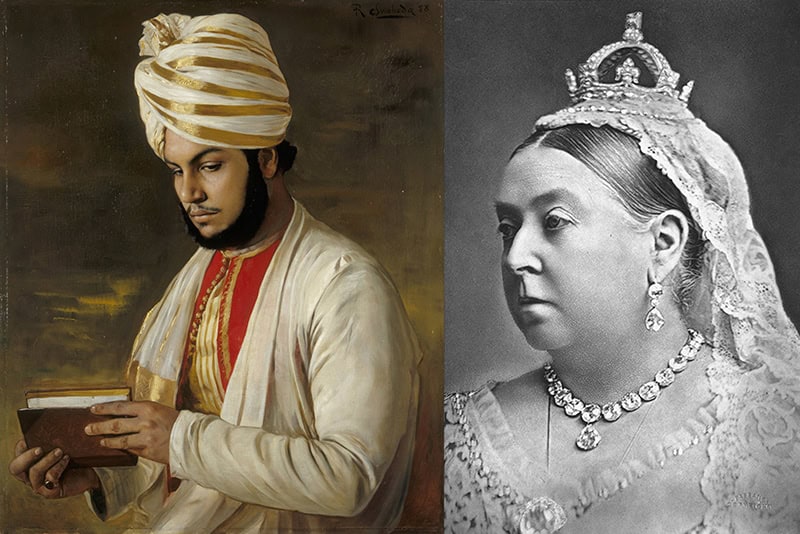The life of Abdul Karim, an Agra-based Indian Citizen, rose from being a servant to becoming a close confidante of Queen Victoria who trusted in him very much and honoured him with titles and other positions.
This story was brought out by a Journalist named Shrabani Basu, who wrote about it in her book ‘Victoria & Abdul: The True Story of the Queen’s Closest Confidant.’
According to the Journalist, as part of Golden Jubilee celebrations in 1887, the Queen expressed her interest in the Indian territories and requested Indian staff members to help serve banquets for heads of state. This led to Abdul Karim, son of a hospital assistant living in Agra, enter into the palace as one of the two servants.

Eventually, with the noble character and upright attitude of Abdul Karim, the Queen Victoria was impressed. She wrote that her first impression of the handsome Karim was that he was “tall with a fine serious countenance.”
https://www.youtube.com/watch?v=R_48coSoWz0
After the Golden Jubilee celebrations, Karim impressed the monarch by cooking her chicken curry with dal and pilau. The Queen enjoyed the dish so much that she incorporated it into her regular meal rotation.
The queen was also interested in culture of India that she asked Karim to teach her Urdu, which was called Hindustani that time.
Karim was hired as a servant, but Queen Victoria quickly promoted him to “Munshi and Indian Clerk to the Queen Empress” at a monthly salary of 12 pounds. He was later promoted to a highly decorated secretary.

Journalist Basu who uncovered the story of Karim and queen Victoria, told the Telegraph that “He spoke to her as a human being and not as the Queen. Everyone else kept their distance from her, even her own children, and this young Indian came with an innocence about him. He told her about India, his family and was there to listen when she complained about her own family.”
Queen Victoria also wrote that “I am so very fond of him,” and also added that “He is so good and gentle and understanding . . . and is a real comfort to me.”
Queen Victoria also had soft corner for Muslims when Abdul Karim spoke to her about conditions of Muslims, the Principal minorities in India. Abdul Karim talked to the queen about political representation of Muslims and improving their socio-economic conditions of Muslims.
Queen Victoria also believed that Muslims can be trusted blindly.
The Queen also wrote letters to Abdul Karim which addressed him as your loving mother and closest friend. Basu told to Telegraph that “In letters to him over the years between his arrival in the U.K. and her death in 1901, the queen signed letters to him as ‘your loving mother’ and ‘your closest friend.’”
Basu also told to Telegraph that “On some occasions, she even signed off her letters with a flurry of kisses—a highly unusual thing to do at that time. It was unquestionably a passionate relationship—a relationship which I think operated on many different layers in addition to the mother-and-son ties between a young Indian man and a woman who at the time was over 60 years old.”
Karim’s descendants believe that the relationship was platonic and maternal at best.
When Karim expresses his desire to return to India, the queen invited Karim’s wife to join him in England. She gave the couple homes on all of the main royal estates in the U.K. and land in India.
Queen Victoria requested that Karim be among the principal mourners—a small group of her closest friends and family members—at her Windsor Castle funeral. The requested was compiled by her son Edward who allowed Karim to be the last person to view Victoria’s body before her casket was closed.
According to The Smithsonian though, “Edward VII sent guards into the cottage Karim shared with his wife, seizing all letters from the queen and burning them on the spot. They instructed Karim to return to India immediately, without fanfare or farewell.”

